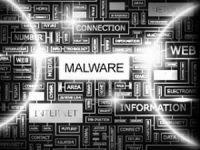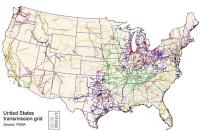-
Following indictments, China’s military reduces its commercial cybeespionage against American companies

The People’s Liberation Army (PLA) has reduced its cyberespionage activity targeting American companies since five PLA officers were indicted by the Department of Justice in May 2014. “The indictments had an amazing effect in China, more than we could have hoped for,” said one expert. In April, Obama signed an executive order calling for impose economic sanctions on individuals and entities that take part in or benefit from illicit cyber-activities such as commercial espionage. “If the indictments had the effect of getting the PLA to scale down, then sanctions likely will have a wider effect on other Chinese state-sponsored groups,” says another expert.
-
-
Low-cost malware detection

The battle between malware authors and security researchers has changed dramatically in the last few years. The purpose behind malware was often for the sake of a prank, to expose vulnerabilities, or for the sake of spite. Today, malware is more about stealing sensitive data and exploiting information for fraud, identity theft, and other criminal intent. An add-on for antivirus software that can scan across a computer network and trap malicious activity missed by the system firewall is being developed by an international team.
-
-
Untraceable communication -- guaranteed
Anonymity networks, which sit on top of the public Internet, are designed to conceal people’s Web-browsing habits from prying eyes. The most popular of these, Tor, has been around for more than a decade and is used by millions of people every day. Recent research, however, has shown that adversaries can infer a great deal about the sources of supposedly anonymous communications by monitoring data traffic though just a few well-chosen nodes in an anonymity network. Researchers have developed a new, untraceable text-messaging system designed to thwart even the most powerful of adversaries.
-
-
Concerns over attacks on the U.S. electrical grid increase after Paris attacks

In the aftermath of the 13 November attacks in Paris, U.S. government agencies involved with grid security and utilities are preparing to thwart a major attack on the U.S. electrical grid. Government agencies and utilities believe an attack or series of attacks on the electrical grid of the United States is imminent — more so in the aftermath of the attacks on Paris. They are carrying out drills and exercises to brace for them.
-
-
Good apps talking to bad Web sites behind your back

In one of the first studies to analyze behind-the-scenes behaviors of good applications, researchers conducted a large-scale analysis of URLs embedded in 13,500 free android apps downloaded from Google Play. The apps tested were created by reputable developers and downloaded by many people, among them popular social media, shopping, news and entertainment apps. The researchers found that almost 9 percent of popular apps downloaded from Google Play interact with Web sites that could compromise users’ security and privacy; 15 percent talked to bad Web sites (with intentions that vary from harming devices, stealing confidential data or annoying users with spam); and 73 percent talked to low-reputation Web sites(those receiving a Web of Trust rating lower than 60/100).
-
-
New cybersecurity legislation would shield companies from public records laws
A legislation which passed both houses of Congress, but has not yet signed into law by the president, aims to encourage companies and organizations to share with the U.S. government information about cyberattacks and cyberthreats they experience –but critics say there is a catch: the legislation would severely restrict what the public can learn about the program.
-
-
USD launches a new Center for Cyber Security Engineering and Technology

To address the threats cyberattacks pose to the security, prosperity, and privacy of the United States and its citizens, the University of San Diego announced the creation of its Center for Cyber Security Engineering and Technology. The Center will focus on cybersecurity challenges through education, training, and research.
-
-
DHS runs many unsecured databases: IG
DHS Inspector General found that DHS is running dozens of unpatched databases, some of which are rated “secret” and even “top secret.” An audit of the department’s IT infrastructure has found large security gaps, including the fact that 136 systems had expired “authorities to operate” – that is, no one was in charge of keeping them updated. Of the 136, 17 were classified as “secret” or “top secret.”
-
-
E-mail security is better than it was, but far from perfect

E-mail security helps protect some of our most sensitive data: password recovery confirmations, financial data, confidential correspondences, and more. A new report finds that e-mail security is significantly better than it was two years ago, but still has widespread issues.
-
-
Encryption firm tightens access following Paris attacks
Encrypted communications specialist Silent Circle, after learning that ISIS was recommending two of the company’s products — the encrypted Blackphone handset and Silent Phone applications for private messaging — to the organization’s followers, is taking steps to make it more difficult for terrorists and their followers to use these products.
-
-
Telegram IM app recalibrates policies after Paris attacks
Pavel Durov, the creator of the popular instant messaging app Telegram, has said that following the Paris terrorist attacks, his company has blocked dozens of accounts associated with the jihadist Islamic State group. As is the case with other technology companies, Telegram is trying to negotiate the balance between privacy and security: the same privacy-enhancing technology which keeps customers’ communication private, also helps terrorists communicate with each other and plot attacks safe from monitoring and surveillance by intelligence agencies and law enforcement.
-
-
Paris terrorist attacks reignite debate over end-to-end encryption, back doors
The exact way the terrorists who attacked France last Friday communicated with each other, and their handlers, in the run-up to the attack is not yet clear, but the attack has prompted law enforcement and intelligence agencies in Europe and the United States to renew their call to regulate the use of new encryption technologies which allow users to “go dark” and make it difficult, if not altogether impossible, to retrieve the contents of communication.
-
-
Iranian global cyber espionage campaign exposed
Check Point Software Technologies Ltd. on Monday published a 38-page report identifying specific details and broad analysis on cyber-espionage activity conducted by the group “Rocket Kitten,” with possible ties to Iranian Revolutionary Guard Corps. The new report also reveals details of the group’s global operations and insight into more than 1,600 of their targets.
-
-
Automated application whitelisting to prevent intrusions, malware
Automated application whitelisting regulates what software can load onto an organization’s network. It is one of a number of techniques that can help prevent malware infections, and it complements other security technologies that are part of an enterprise’s defense-in-depth resources. The National Institute of Standards and Technology (NIST) has published a guide to deploying automated application whitelisting to help thwart malicious software from gaining access to organizations’ computer systems.
-
-
DHS S&T-funded technology protects devices from cyberattacks
In 2011, a small group of university researchers working on securing embedded devices caught the attention of the Department of Homeland Security (DHS) Science and Technology Directorate (S&T). That effort has since evolved into a one-of-a-kind technology — called Symbiote — which Hewlett-Packard (HP) recently licensed from Red Balloon Security, to protect its printers from cyberattacks.
-
More headlines
The long view
Ransomware Attacks: Death Threats, Endangered Patients and Millions of Dollars in Damages
A ransomware attack on Change Healthcare, a company that processes 15 billion health care transactions annually and deals with 1 in 3 patient records in the United States, is continuing to cause massive disruptions nearly three weeks later. The incident, which started on February 21, has been called the “most significant cyberattack on the U.S. health care system” by the American Hospital Association. It is just the latest example of an increasing trend.
Chinese Government Hackers Targeted Critics of China, U.S. Businesses and Politicians
An indictment was unsealed Monday charging seven nationals of the People’s Republic of China (PRC) with conspiracy to commit computer intrusions and conspiracy to commit wire fraud for their involvement in a PRC-based hacking group that spent approximately 14 years targeting U.S. and foreign critics, businesses, and political officials in furtherance of the PRC’s economic espionage and foreign intelligence objectives.
Autonomous Vehicle Technology Vulnerable to Road Object Spoofing and Vanishing Attacks
Researchers have demonstrated the potentially hazardous vulnerabilities associated with the technology called LiDAR, or Light Detection and Ranging, many autonomous vehicles use to navigate streets, roads and highways. The researchers have shown how to use lasers to fool LiDAR into “seeing” objects that are not present and missing those that are – deficiencies that can cause unwarranted and unsafe braking or collisions.
